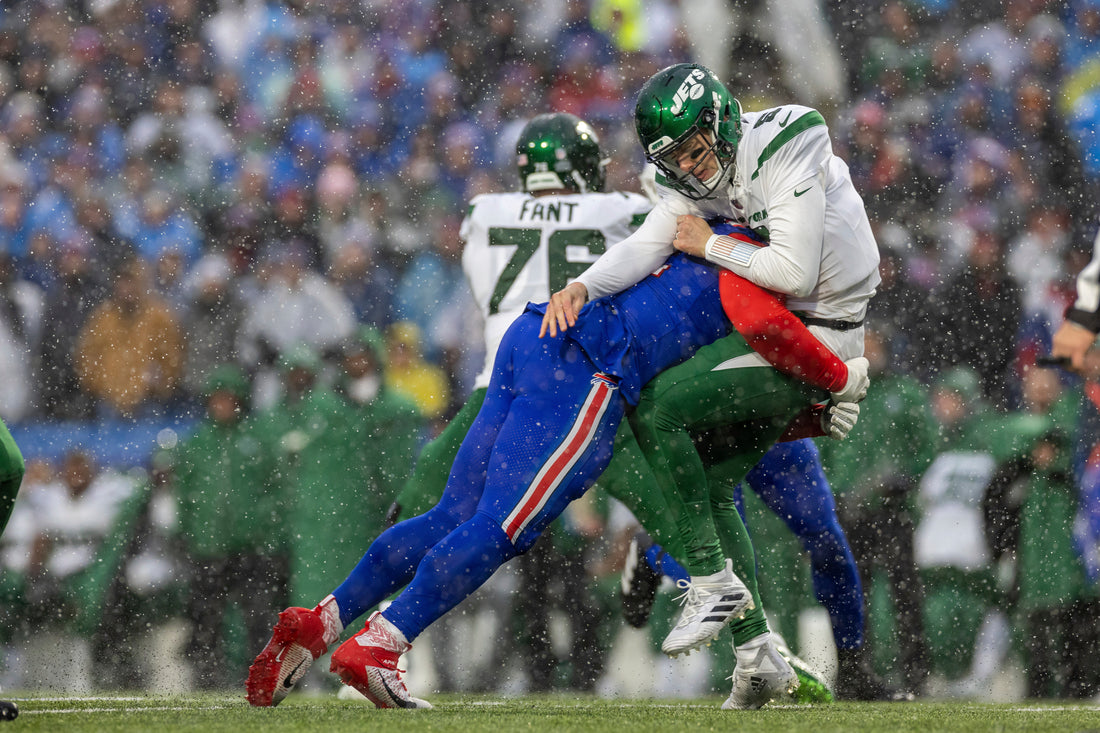Introduction:
In the high-stakes world of sports, athletes are constantly pushing their bodies to the limit to achieve peak performance. However, the presence of pain can significantly disrupt an athlete's abilities, affecting not only their physical performance but also their decision-making qualities. This article explores the intricate relationship between pain, athleticism, and decision-making, particularly focusing on modern athletes as an example. Additionally, we'll delve into potential solutions to address this issue while supporting athletes' physical and mental well-being.
The Modern Athlete's Challenge:
Elite athletes exemplify the fusion of athleticism and decision-making prowess. Various positions demand split-second judgments and precise actions, often under immense pressure. For instance, looking at the quarterback position, the heightened athleticism and intellectual awareness required today means that any physical discomfort can have profound implications for performance.
1. Physical Discomfort's Influence on Mechanics:
When an athlete is dealing with pain, especially in areas crucial for their sport, they tend to alter their mechanics to compensate. For example, quarterbacks with an injured arm, ribs, or shoulder could lead to modified throwing motions, which in turn affects the accuracy and velocity of the throw. This biomechanical adjustment will likely compromise the intended outcome over a series of plays, and games, contributing to sub optimal results for the season.
2. Mental Impact of Pain:
The mind-body connection is powerful. Physical discomfort not only hampers an athlete's body but also affects their mental state. Pain can increase stress, reduce focus, and erode confidence – all of which are detrimental to quick decision-making.
3. Risk Aversion and Decision-Making:
Athletes in pain are more likely to adopt risk-averse behaviors. For instance, quarterbacks might avoid running to protect an injured ankle or knee, altering their playstyle and potentially risking further injury from a tackle.
Solutions for Addressing Pain and Supporting Athletes:
Recognizing the symbiotic relationship between physical well-being and mental fortitude, it's imperative to consider solutions that not only provide relief from pain but also foster an environment conducive to optimal performance.
1. Personalized Programs And Solutions:
Tailored recovery and rehab programs that target the athlete's specific pain points can expedite recovery and restore functional movement. A comprehensive approach, including physical therapy and strength training, adapted to individual needs and preferences, can aid in minimizing biomechanical alterations and enhancing performance. The rise of personal coaches for elite athletes outside of their elite team environments is a testament to this approach.
2. Innovative & Supportive Solutions.
Utilizing advanced gear and equipment designed to alleviate discomfort can play a pivotal role. Innovative solutions like CryoTape fit well in this context, allowing collaboration with additional options such as protective sleeves or braces for added stability if desired.
3. Psychological Support:
Recognizing the psychological toll of pain and the everyday stressors of modern athletes—whether it's balancing academics, personal life, and sports—sports psychologists and player care staff can help athletes cope with stress, anxiety, and self-doubt arising from physical discomfort or external worries. Techniques such as mindfulness and visualization and simple human empathy, can bolster mental resilience and decision-making capabilities.
Conclusion:
The intricate connection between pain, athleticism, and decision-making underscores the significance of holistic athlete care. Modern athletes are defined not only by their physical prowess but also by their mental resilience. By addressing pain through personalized rehabilitation, holistic support approaches for longevity, and psychological aid, we can empower athletes to perform at their best while navigating the challenges posed by pain. After all, acknowledging that physical well-being profoundly impacts mental acuity reminds us that athletes are not just competitors, but human beings striving for excellence.

